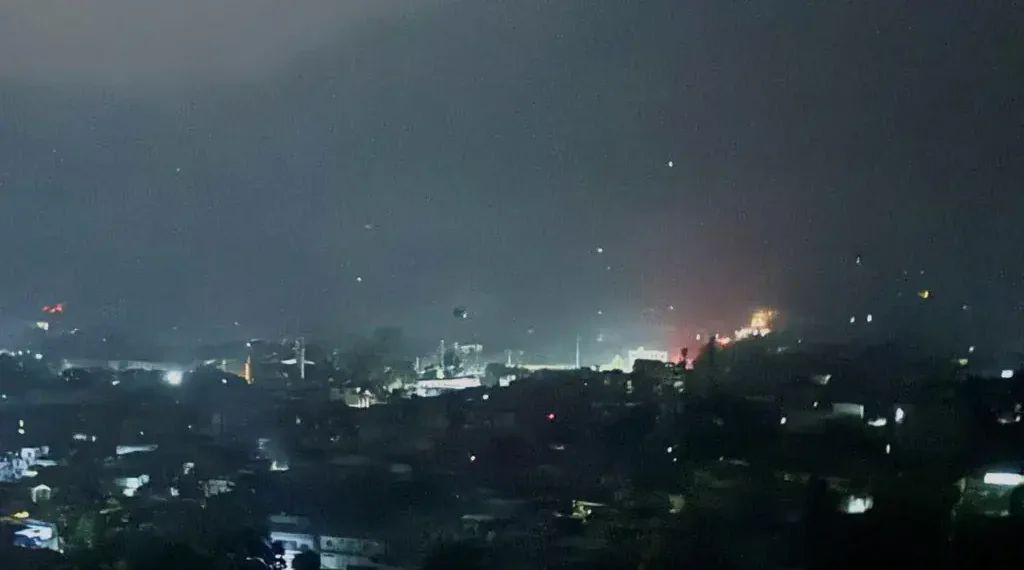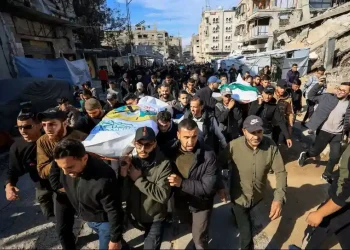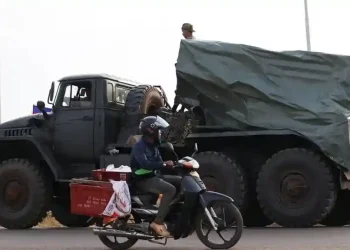Tensions Erupt: What We Know About India’s Strikes on Pakistan and Pakistan-Administered Kashmir
Two weeks after a brutal militant ambush killed 26 people in Indian-administered Kashmir, India has responded with a bold military operation, targeting sites in Pakistan and Pakistan-administered Kashmir. Here’s a breakdown of the escalating crisis, what’s been confirmed so far, and why the region is once again under the international spotlight.
India Launches ‘Operation Sindoor’ After Deadly Tourist Attack
In the early hours of Wednesday, India carried out what it called “focused and measured” strikes on nine locations across the border. The offensive, named Operation Sindoor, was launched in retaliation for the April 22 attack in Pahalgam, a popular tourist town in Indian-administered Kashmir, where 25 Indian nationals and one Nepali tourist were killed.
According to India’s Ministry of Defence, the targeted sites were “terrorist infrastructure” used for planning and coordinating attacks. The ministry emphasized that no Pakistani military facilities were hit, framing the operation as “non-escalatory.”
Pakistan Pushes Back: Civilian Deaths and Aircraft Downed?
Pakistan has strongly condemned the strikes, calling them “unprovoked aggression”. Prime Minister Shehbaz Sharif warned that the attack “will not go unpunished.”
Pakistani officials reported that at least 26 people were killed and 46 injured, claiming the Indian strikes hit civilian areas in Muzaffarabad, Kotli (Pakistan-administered Kashmir), and Bahawalpur (Punjab province).
In a dramatic development, Pakistan’s military also claimed to have shot down five Indian aircraft and a drone—though India has not yet responded to these claims. Meanwhile, India reported that seven civilians were killed by Pakistani shelling in Indian-administered Kashmir.
Why Now? A Tense Backdrop and Mounting Pressure
The strikes follow a sharp rise in tensions since the Pahalgam attack, which Indian authorities described as the deadliest civilian assault in the region in 20 years. Survivors claimed that Hindu men were deliberately targeted, further inflaming emotions in India.
Prime Minister Narendra Modi vowed to bring those responsible to justice, saying they would be “punished beyond their imagination.” However, India has not officially named any militant group behind the attack, though it has accused Pakistani nationals of being involved—an allegation Pakistan denies.
In the days leading up to the strikes, diplomatic ties soured quickly. Both nations expelled diplomats, suspended visa services, and closed key border crossings. Analysts had been warning that a cross-border military response was becoming increasingly likely—similar to the 2019 Balakot airstrikes after the Pulwama bombing that killed 40 Indian paramilitary personnel.
Kashmir: A Powder Keg of Historical Tensions
The Kashmir conflict remains one of the world’s most volatile flashpoints. Claimed in full by both India and Pakistan, but split between them since 1947, the region has been the cause of two wars and multiple military standoffs.
An armed insurgency has gripped Indian-administered Kashmir since 1989, with militants targeting both civilians and security forces. While militant activity had declined in recent years—especially following India’s controversial 2019 move to revoke Article 370, which stripped Kashmir of its semi-autonomous status—recent events mark a dangerous reversal.
This week’s airstrikes echo previous flashpoints. In 2016, India conducted “surgical strikes” across the Line of Control after the deadly Uri attack. In 2019, the Pulwama bombing led to airstrikes in Balakot, deep inside Pakistan—a move that nearly pushed both nuclear powers to the brink.
What’s Next? Global Calls for Restraint
World leaders are urging calm. UN Secretary-General Antonio Guterres has called for “maximum restraint”, while US President Donald Trump expressed hope the fighting “ends very quickly.”
With tensions still high and the potential for further escalation looming, the international community is watching closely. For now, the situation remains fluid—and dangerously unpredictable.
This article was rewritten by JournosNews.com based on verified reporting from trusted sources. The content has been independently reviewed, fact-checked, and edited for accuracy, neutrality, tone, and global readability in accordance with Google News and AdSense standards.
All opinions, quotes, or statements from contributors, experts, or sourced organizations do not necessarily reflect the views of JournosNews.com. JournosNews.com maintains full editorial independence from any external funders, sponsors, or organizations.
Stay informed with JournosNews.com — your trusted source for verified global reporting and in-depth analysis. Follow us on Google News, BlueSky, and X for real-time updates.














